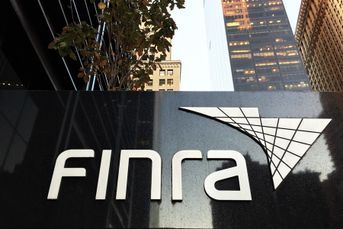BONDS ARE BACK, ALL KINDS OF BONDS, FOREIGN, DOMESTIC, HIGH-GRADE, JUNK: MANAGERS SEE CHANCE AS MARKET SETTLES OUT
Domestic and international bond markets are once again attracting the attention of institutional investors. Recovering from last summer’s…
Domestic and international bond markets are once again attracting the attention of institutional investors.
Recovering from last summer’s roller-coaster markets, investors from Boston to Los Angeles have been busy wrapping up or beginning manager searches, terminating managers or handing more assets over to existing bond managers.
The changes come in a range of styles, from pure international plays to core-plus accounts that include exposure to U.S. high-yield debt or emerging markets.
Los Angeles County Employees’ Retirement Association terminated UBS Brinson and Capital Guardian Trust Co. last month and hired Bridgewater Associates to run the $600 million in international bonds the two had managed.
The Texas A&M University System in College Park also last month handed $130 million in assets to Payden & Rygel after terminating Smith Graham & Co. Asset Managers LP.
And the $22 billion Retirement System of Alabama in Montgomery invested $10 million in U.K. gilts in early January.
Money managers and pension fund executives point to the recent relative calm in international markets for some of the activity. Institutional investors, they say, have shied away from putting new money overseas after Russia’s default and the near collapse of Long-Term Capital Management LP, the hedge fund that had bet heavily on high-risk securities.
“Prior to the summer, everyone wanted to get into core-plus,” says Juan Almaguer, senior investment officer, fixed income, with the $28 billion Los Angeles County fund. After the debacle, yield spreads widened and investors lost money, he says, adding it “caused people to rethink their strategies.”
The system’s core-plus managers, he says, “are little by little” putting more money into domestic junk, foreign nation and emerging market debt.
Los Angeles County, with $9 billion in bonds, has $1.8 billion of it in international bonds. It uses the Salomon non-U.S. government bond index and is 50% hedged.
Some pension plans are investing in global bond accounts to diversify their portfolios. National Fuel Gas Co. in Buffalo, N.Y., with $520 million in defined benefit assets, hired Brandywine Asset Management in March to run $25 million in global bonds. It’s the plan’s first allocation to the asset class, says Barry Cope, manager of trust investments.
The fund had the cash after a 10-year guaranteed investment contract matured, and the plan made the move for greater diversification.
Other pension fund officials say they are looking to take advantage of the changes in European bond markets, which are becoming less diverse in the wake of the euro.
The $3 billion San Bernardino (Calif.) County Employees’ Retirement Association has reduced its exposure to global bonds to 5% from 10% of its total portfolio.
looking for the spread
At the end of 1997, the fund cut the assets managed by Scudder Kemper Investments Inc. in a global bond account. Last month, it solcited bids for a global core-plus bond manager. In Europe, “asset-backed securities and corporates are getting bigger,” says Tim Barrett, chief investment officer. “We wanted a manager with the resources to look at spread products.”
The new mandate, which will total close to $150 million, is meant to add to the fund’s returns and expand the type of bonds its manager can hold, he says.
San Bernardino also pumped more money into the U.S. high-yield market. One-fifth of the fund’s reduction went to its domestic equity allocation, while the remainder was divvied up by its domestic core-plus managers, Bradford & Marzec Inc. and BlackRock Inc. The two have license, respectively, to invest up to 20% and 10% in high-yield bonds, Mr. Barrett says.
Some pension fund executives say the collapse in Russia, which spread to Latin America, only confirms the heavy risk pension plans face when investing overseas.
The City of Hartford (Conn.) Municipal Employees’ Retirement Fund changed its strategy to start investing in overseas bonds shortly before the markets collapsed, says Kathleen Palm, city treasurer.
Last summer, it decided to search for a global bond manager, its first exposure to bond markets overseas.
The $975 million plan is running an in-house search for a global fixed-income manager to run a $40 million account, she says, and it should make its decision by June.
“We’ve been aware for a long time that (foreign bond markets) are inherently more turbulent,” she says.
Crain News Service
Learn more about reprints and licensing for this article.








